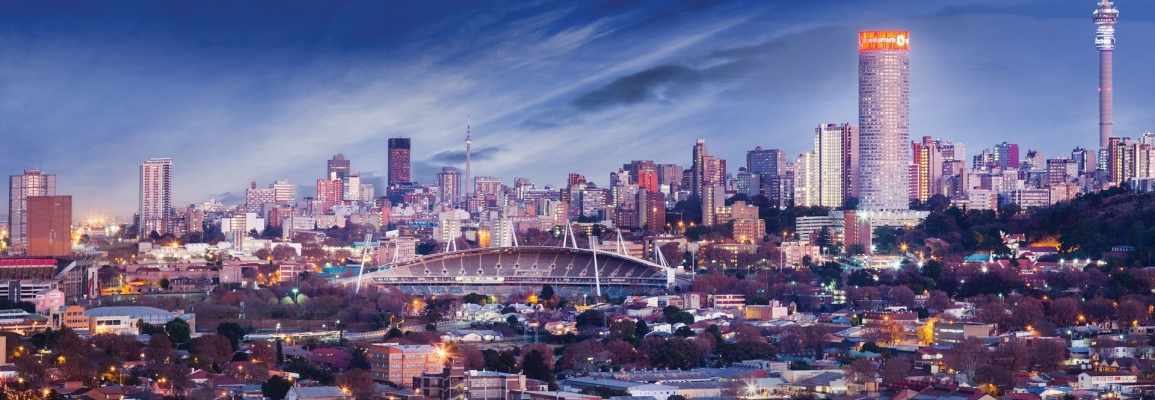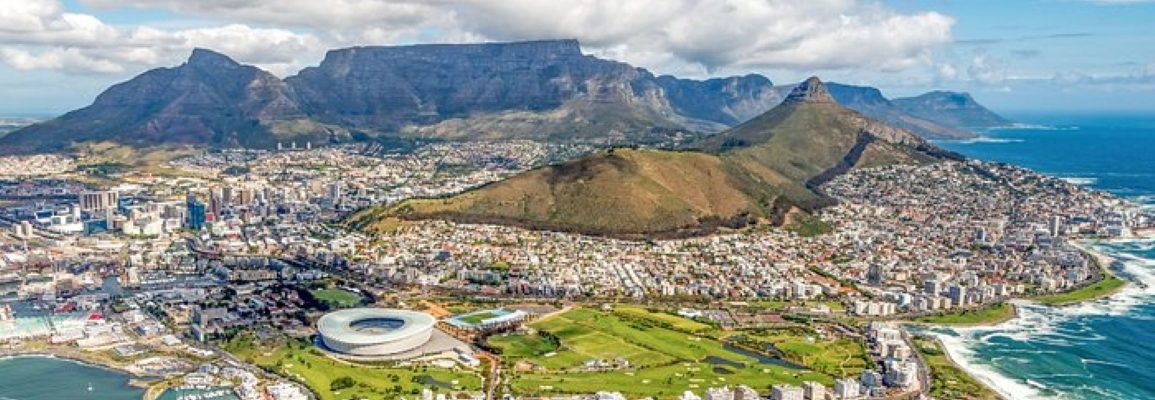Program Dates: July 12, 2024 - July 29, 2024
The bulk of South Africa’s history is characterized by the subjugation of the country’s population in the form of segregation during the era of colonization and later, the extension and legitimization of this practice through the institutionalization of racial segregation—Apartheid. Even after 25 years of democracy, the systemic aftermath of such a violent moment in South Africa’s history still lingers and can be seen in the vast inequality still prevalent in South African society today. The current era, often referred to as Post-Apartheid South Africa, is one of a people striving to embody the ideology of the “rainbow nation” while also still grappling with issues of racial inequality and injustice—stubborn remnants of the old Apartheid system—evidenced by racial controversies which flare up and draw the populace into heated dialogue.
This course is an experiential learning opportunity for students to have access to the Democratic dispensation from the lens of Race and Justice. The course will start in Boone for two weeks of classes, then take flight to Johannesburg (including an excursion to the Pilanesberg National Park), and will then end, where the written history of South Africa began, the Cape of Storms. Classes are taught both in Johannesburg and Cape Town. This program will allow students access to a variety of landscapes—political, economic, and social—to form a holistic experience for the students to understand the impact of generations of racial and economic inequality.
Locations
Johannesburg
Locally referred to as Egoli (the City of Gold), Jo’burg, or Jozi, Johannesburg is the largest city in South Africa. Since the discovery of gold in 1886, Johannesburg has been the beating heart of South Africa’s economy, while also being the epicenter for a lot of the racial tension and related political backfire that took place in the anti-Apartheid civil movement in South Africa. Nearby is the famous Soweto township as well as the Apartheid Museum. Today, Johannesburg remains the country’s commercial hub, and where the South African stock exchange is located. You could say Johannesburg is the New York of South Africa.
Cape Town
Also known as the Mother City, Cape Town has been voted the world’s top tourist destination for a few years running, and visiting the city will bring no surprises as to why. Cape Town is surrounded by the iconic Table Mountain, overlooking the Atlantic Ocean. Just behind the mountain peaks, you will find Cape Point, where the Atlantic and Indian Oceans meet. And just across Table Bay lies the infamous Robben Island, where Albert Luthuli, Robert Sobukwe, Nelson Mandela, and other heroes were held captive during the struggle for liberation. The Western Cape also provides the world with some of the best wines on offer, as well as amazing fruit, produce, and cheeses. Cape Town is a city that never sleeps, with a very vibrant nightlife juxtaposed with the most beautiful trails for nature walks and runs, not to mention surfing and even wildlife safaris at nearby game reserves. Honestly, Cape Town has it all.
Academics
Course Prefix | Course Name | Credits | Instructor |
CJ 4530 | Race and Justice in South Africa | 3 | Dr. Matthew Robinson |
Faculty Leader
Dr. Matthew Robinson
Professor, Criminal Justice
Department of Government and Justice Studies
robinsnmb@appstate.edu
Matthew Robinson is a Professor in the Department of Government and Justice Studies. He has been at Appalachian State University since 1997. During his time at the university, Robinson has published 27 books, more than 100 articles, and book chapters on a wide range of topics. He is the Past President of both the North Carolina Criminal Justice Association and the Southern Criminal Justice Association and he currently serves as Treasurer of the Justice Studies Association. An accomplished world traveler, Robinson has been to every continent at least twice (including Antarctica!), and he has traveled to South Africa both for work and for
pleasure. In 2019, Robinson served as a Visiting Professor of Law at the University of Zululand in KwaZulu-Natal, South Africa. Robinson will also be serving as a Visiting Professor of Law at the University of Pretoria in South Africa, in 2025.
Program Cost: $3,580
Program cost includes lodging, most meals, tours, workshops, in-country travel, and national park entrance.
Please note - Students are responsible for the total program cost upon submiting the application and deposit. Refunds are contingent upon meeting the minimum enrollment of the program. If a student decides to withdraw before departure, that student may be eligible for a refund if the program has met minimum enrollment and is therefore viable.
Non-billable costs are estimates only and will be affected by personal spending habits, currency fluctuations, etc. Prices listed in USD unless otherwise noted. Students are encouraged to start planning for their study abroad program costs well in advance.
Payment Schedule | Amount | Date |
Deposit | $300 | Upon receipt of application |
Remaining balance due | $3,280 | 03/19/2024 |
Estimated Additional Expenses | |
Undergraduate Tuition - Resident | $153/ credit hour |
Undergraduate Tuition - Non-Resident | $173/ credit hour |
Airfare | $2500 |
Additional meals | $300 |
Passport | $150 |
Appalachian reserves the right to cancel or alter the program format or to change costs in case of conditions beyond the university's control. Further details about Appalachian's withdrawal/cancellation policy can be found at this link.
Application Process
- In order to apply for this program, you will need to contact one of the program leaders and provide your Banner ID and email address. Program leaders may request additional information or a meeting to discuss the details of the program and your interest.
- When permission to apply for the program is granted, you will receive an email from your program leader with instructions to apply.
- Apply to the program following the instructions from the program leader.
- Print, sign and drop off your application at the Office of International Education and Development at Plemmons Student Union (PSU), Suite 321 ( 3rd floor), 263 Locust Street Boone, NC 28608. Your application will be considered complete when you have submitted your digital application, paid the $300 deposit, and dropped off your printed and signed application. The fee cannot be paid until it appears on your student account. Please note that it may take 2–3 business days for it to post to your account. You will receive an email with Instructions for paying the deposit fee. Instructions can also be found in the application.

